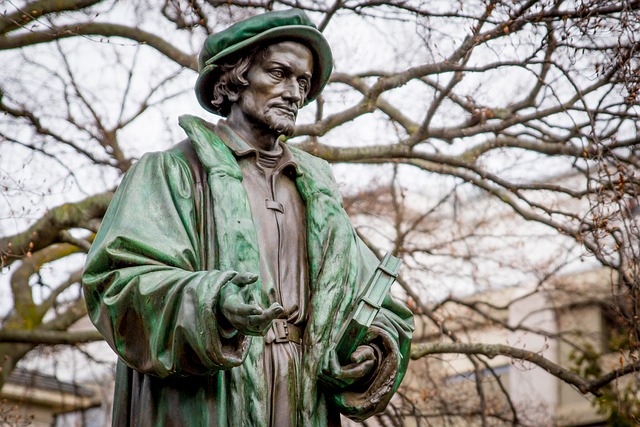
If you have ever read much of Austrian neurologist and psychoanalysis founder, Sigmund Freud’s writings, you are most likely aware Freud saw sex at the heart of human suffering. Actually he seemed to think it at the heart of most everything human.
On the other hand, famed anthropologist Ernest Becker saw the fear of death at the heart of human suffering and struggle. Becker even wrote a book about this.
Martin Luther, on the other hand, seemed to see fear of a wrathful God at the heart of human struggles.
I am neither a Freud or Becker, but I am an amateur student of Luther and of human behavior. There is something to be said for Freud’s understanding of sexuality in our humanity and likewise there is something to be said for Becker’s understanding of humanity’s fear of death. Certainly in Luther’s time with such short life-spans we can see his point. All can and do contribute to human suffering. Yet into this mix I would like to add an observation I have made over the years.
In watching my fellow humans struggle and in being very much a part of such human struggles, I have witnessed a fear of living as contributing much to our suffering.
Yes, a fear of living. How often have we held back from doing something we wanted to do? Many times we may have even refrained from doing something we were convinced was the right thing to do for us and/or for someone else. Sometimes we choose mere existence over living.
What I find most interesting in all this is that followers of Jesus can be those most inhibited. We don’t want to upset God, after all. “What would Jesus do?”, we ask. We play it safe as though grace does not exist. It is not that we ought to sin profusely so that grace may abound. It is also not that grace has given us a blank check so we can do whatever it is that makes us happy without regards to anyone or anything else.

In a letter written to his Wittenberg colleague Phillip Melancthon, written from Martin Luther’s hideout in the Wartburg Castle, Luther wrote, “Sin boldly!” He followed this with “trust in Christ strongly.” Luther was not encouraging anyone to not take sin seriously. Specifically in this missive, he was encouraging pastors to risk preaching what they believed to be true.
We all have regrets in life. Too many are of choices not made or decisions to back down from what we wanted or thought right. Some such regrets can even seem to haunt us through life. Years later they can still bring at least a bit of pain.
I wish Freud and Becker were still around so I could bounce my theory off their insightful and creative minds. With Luther, we could have many conversations over spouse Katie’s homemade brew. Certainly all of these figures seemed to live by holding little back. This may be one of the reasons people continue to study their works instead of relegating them all to history’s attic.
Jesus saves, we proclaim. It seems to me that from which Jesus most saves us is ourselves. In so doing Jesus wants us to return to our humanity and to live as the human creatures we were created to be. How much of our sin is tied up in trying to deny our humanity? How much of our sin is our failure to live?
Survival and existence have their place. Yet we were created to be those who live. We were created to be those who live not just for ourselves, but for others. Living a life of faith is in great part living as those unafraid to live. People of grace, fear not! People of grace, LIVE!
